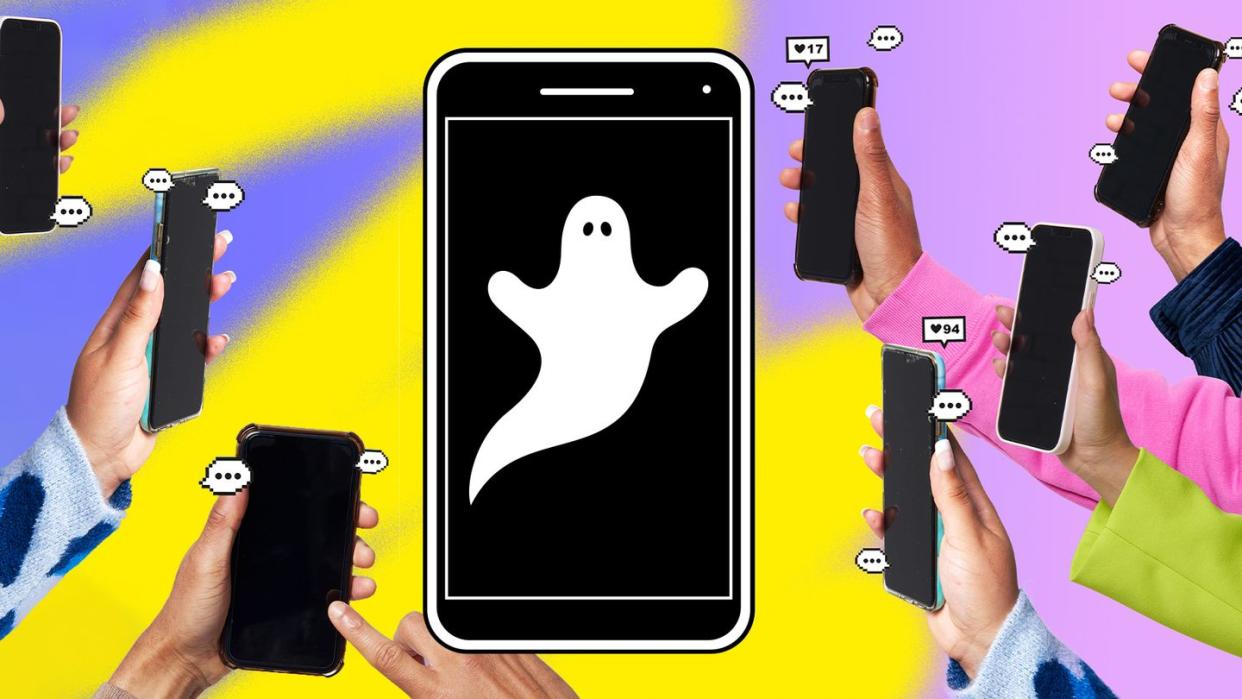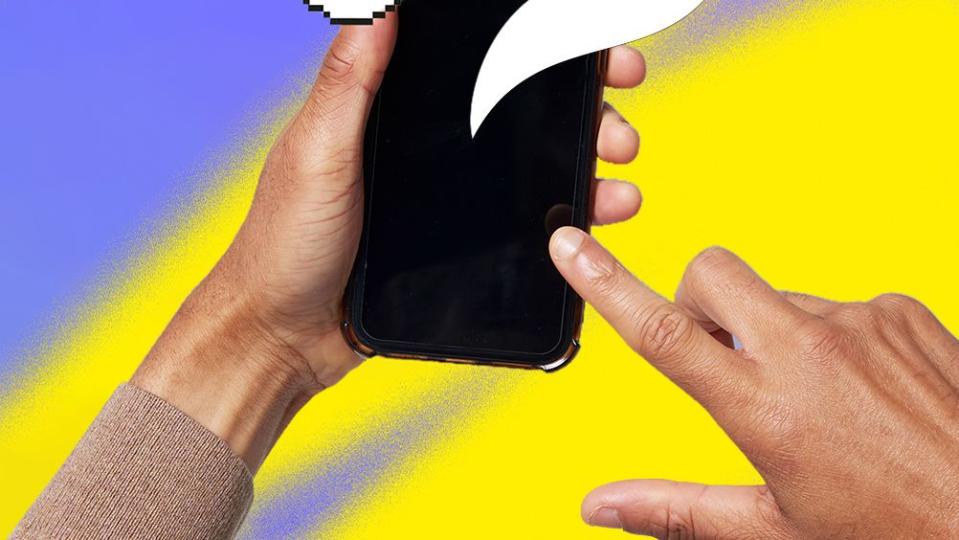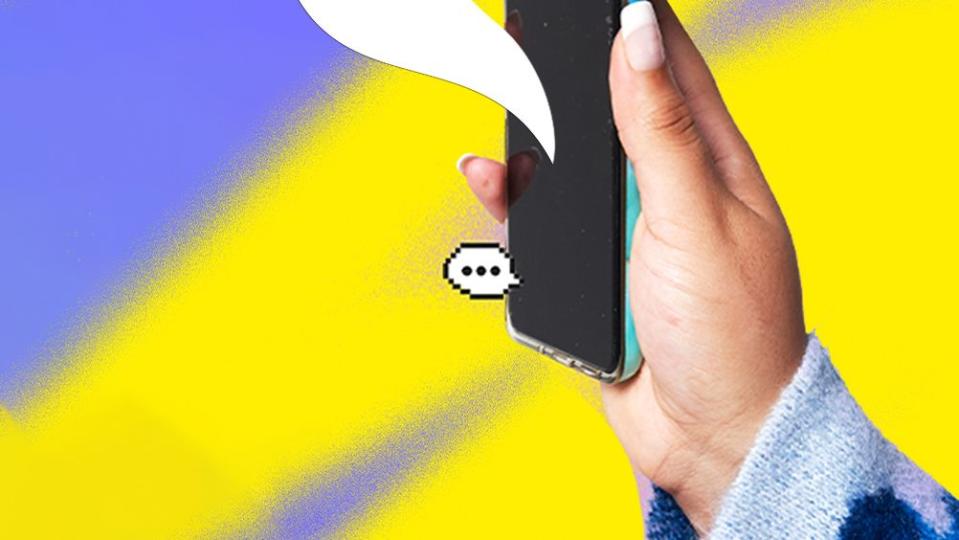Ghosting Has Gone Way Too Far

First, a confession: I’m an incessant communicator. I’m that friend that immediately responds to texts; the pesky coworker who Slacks you paragraphs back; the psycho who still attempts to reply to emails in a timely fashion. In a world where it’s acceptable to never reply to a person’s message, I’m barreling into your DMs and asking in all-caps IF YOU GOT MY TEXT. I know the world views me as a monster, but I refuse to chill, because of a belief held deep in my bones. Ghosting has gone way too far.
According to the people who study this stuff, one of the reasons my close friends and loved ones never text me back is because society is yet to agree upon a new set of rules for communicating in an era of 24/7 digital availability. In other words, technology has developed faster than etiquette, leaving people to wonder how long is too long to sit on an email, and if it's more rude to ignore a text or expect a reply.
I’m sensitive to the fact that we are in uncharted territory when it comes to communication and that the rules that guided our behavior in the world before smartphones should no longer apply. I even agree, to an extent, that just because you receive a message from someone, doesn’t mean you’re on the hook to answer it. Broadway legend Pattie Lupone has no business responding to my gushy DMs. But my wife? She is not excused. Where I draw the line is the increasingly popular idea that it’s no longer normal—and might even be rude—to expect a reply at all.
Ghosting should be the exception, not the rule. Why send a message if not for the hope or need for a reply? Remove that expectation or label it rude and you transform the humble act of initiating conversation into a fraught and unnecessarily vulnerable endeavor.
These days I question every message I send, especially if I know I'm rolling the dice on a flakey replier. I probably only send half the ones I start, and the ones that do make it out the drafts folder inevitably begin with an apology. Why am I sorry? For asking a question I need an answer to?

More interestingly though are the ones that never get sent. I peeked at a few Slacks and emails that I abandoned and all of them are more personal and non-urgent: an article on a topic I'd discussed with a colleague; a meme I knew would make my friend laugh; a random happy memory of a relative. These are meaningful mementos of a happy, social life. Evidently, they're also the messages that get cut first when every text or e-mail is considered an imposition.
I realize not everyone takes this stuff as personally as I, a gay pisces, do. We all have different needs for communication and closure, and my therapist is right: just because someone didn’t text me back doesn’t necessarily mean they died in a shark attack and/or hope I burn in hell. In fact, I’ve read a few articles that argue such neurotic thoughts are selfish. The logic goes that if you expect a prompt reply and think the worst when you don’t get one, you’re assuming that you are the main character in somebody else's story. In reality, the more likely reason a person isn’t getting back to you is because you don’t matter. Not compared to their child, or job, or climate change, or whatever it was they were thinking about when your text rudely interrupted their day.
I got checked big time on my main character energy when I saw a LinkedIn post from someone I was frustrated with for blowing off a meeting that he requested, then dropping out in the middle of our conversation about rescheduling. It struck me as incredibly rude. Turns out his start-up was on the brink of collapse. He announced his company’s closing on LinkedIn a few weeks after we were supposed to meet. I felt terrible. At the same time, I’ve lost a job before. I’ve had bad business streaks. Maybe I blew people off during those days. I hope I didn’t.
We all have shit on our plates. If you tell yourself you’re too busy or stressed to respond to someone, you’re also making an assumption: that you’ve got more going on than the person who reached out to you. Maybe you do. But unless you’re the president, and an over-eager intern just emailed you looking for some career advice (in which case ignore them), you probably don’t. It’s selfish to assume your message is someone else’s priority; it’s equally selfish to assume that the person who reached out to you isn’t also juggling multiple, pressing things at once.
If the reason we’re all terrible at getting back to each other is truly because we don’t know the rules, allow me to introduce one: instead of saying nothing, try your best to say something—even if it’s just, “I’ll get back to you later”—whenever you can. But I don’t buy the rules explanation. Nor do I buy the other reason I frequently came across in my research, which claims that responses lag because more people are attempting to disengage from their devices for large chunks of time.
I am all for setting boundaries around digital communications. I frequently take breaks from social media and have never allowed any app to send me a push notification because who in the hell does Words with Friends think it is? But I have a hard time believing that the reason we’re so dreadful at responding to texts and emails is because we are being mindful about our tech usage. In a survey from 2021, 30% of Americans said they are ‘almost constantly’ online. I imagine that amount has since increased.

If anything, ghosting is normal now because there are more ways to be online than ever before and a stupid amount of things to distract you once you log on. Just yesterday I dismissed three concerned texts from my Mom about our family history of high cholesterol because I was “busy” watching TikToks of frogs dressed in prairie dresses.
I’m afraid the real reason silence has become our default form of communication is because between the proliferation of social media and an isolating pandemic that forced us to live inside a Zoom box for two years, we’ve lost the art of social interaction. It used to be that there were consequences for our communication, or lack thereof. You couldn’t blow off an email from a colleague unless you were prepared to deal with an awkward run-in at the water cooler. Now our lives are set up in ways that make it easy to ignore a person’s request and move along without any issue, which wouldn’t matter except that ghosting or not responding or whatever you want to call it is itself indicative of a fragile state of mind.
Sometimes people ghost because they are busy, or forgetful, or distracted. Other times because they don't know how to deal with conflict. It’s an avoidance of responsibilities. Saying nothing is much easier than saying something because it frees you from having to see another person’s hurt feelings or disappointment. The problem is, those sorts of encounters are necessary for developing crucial skills like empathy, introspection, compassion, and patience. And even if they weren’t, the equation is the same: the more we ghost, the less we communicate. No wonder we’re such a lonely nation.
While I'm not naive enough to think that we can reply our way out of a national mental health emergency, I do wonder if it could kickstart the healing process. Spontaneous, unnecessary chit-chat is good for the soul; Embracing a difficult conversation builds resilience; getting back to someone makes them feel good; it should also feel good to you. Norms may be shifting, but giving your time and attention to someone who politely asked for it, will always be a generous and worthwhile act.
You Might Also Like


